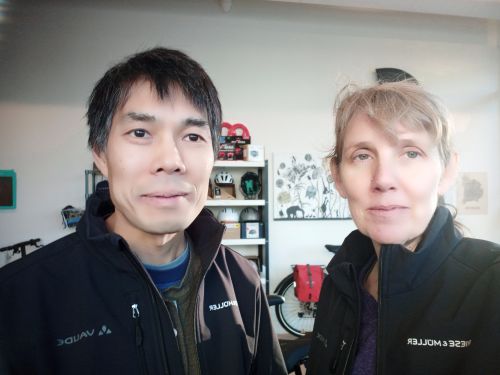A version of this feature ran in the March issue of BRAIN.
BOULDER, Colo. (BRAIN) — For our March magazine edition, we asked our State of Retail panel members: What are the market forces that you feel are most out of your control? What resources or training help you manage?
CARSON CITY, Nev: Win Allen, owner Win’s Wheels
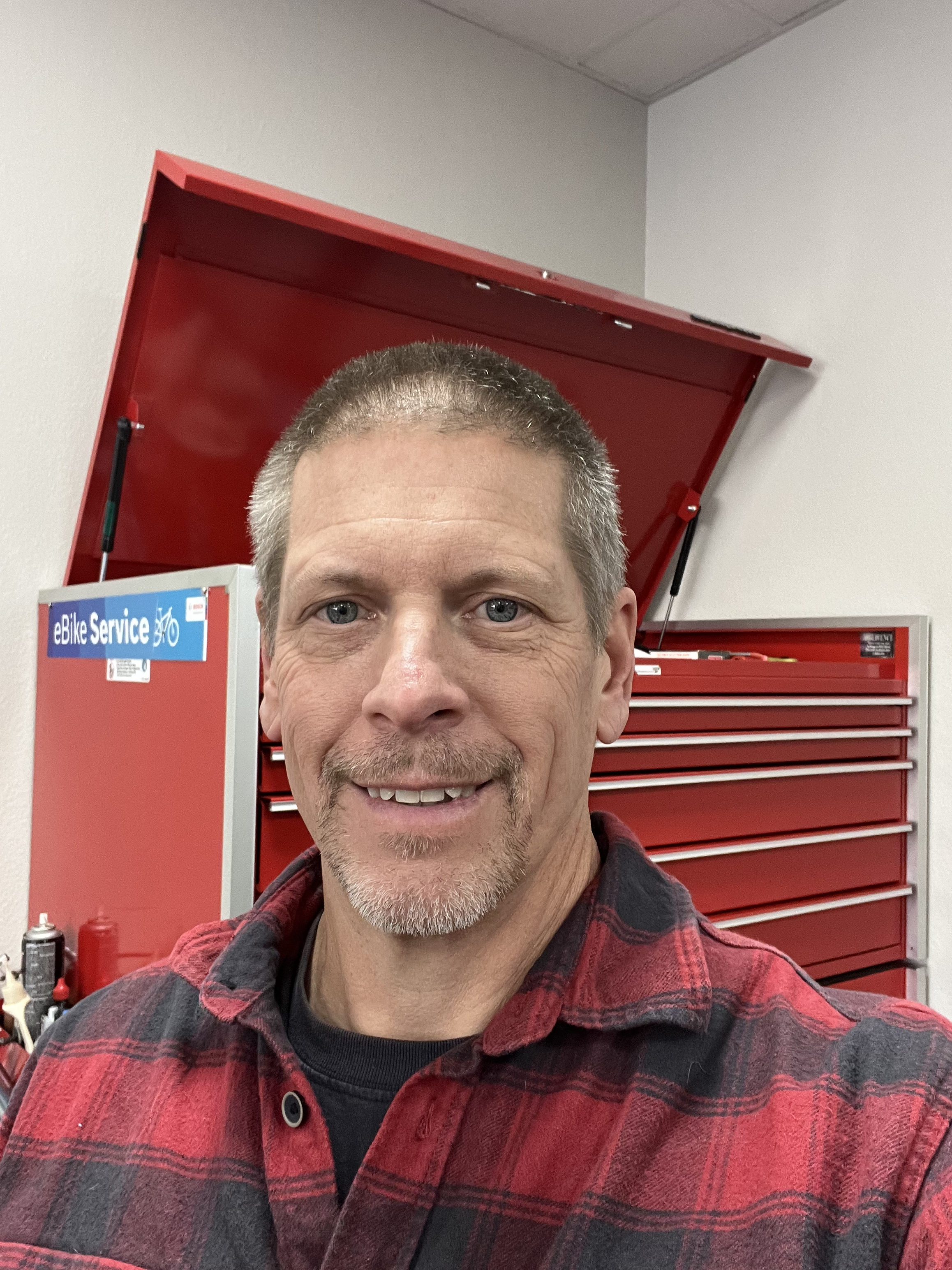
Shipping costs are out of our control and always changing. I try to overcome this by only placing orders that qualify for free freight. In addition to modifying how and when I order in the hunt for free freight, I will be participating in QBP's and BTI's incentive and discount programs, which should help to increase our ever-lowering profit margins.
There is so much good info out there from the manufacturers that is unutilized by shops, so I make sure that ALL of the online training and continuing education that is available to me is current. Participating in online or in-person training will do a few things for your shop and your employees. First, it will save you time on calling manufacturers for tech help. Second, it gives you a better understanding of the product you're selling and working on. Third, it may save you from installing or servicing a product incorrectly. I do learn better from hands-on training. Hopefully, manufacturers will bring/add that in the coming years.
CHARLOTTE, N.C.: Matthew Crawford, manager The Spoke Easy

There are three market forces posing significant challenges for us. First, the rapid evolution of electric vehicles, including e-bikes, presents complexities in servicing and maintenance due to their electrical components. We plan to combat this through continuing education and increased awareness. Secondly, the "right to repair" movement is gaining momentum. We're committed to supporting this by providing access to spare parts and service for the bicycles we sell, enhancing customer trust and loyalty. We offer regular maintenance workshops that empower our community to learn the skills necessary to do their own repair and upkeep. Finally, the size, weight, and storage requirements of customer e-bikes pose logistical challenges. We're exploring efficient storage solutions and investing in equipment suitable for e-bikes, ensuring our mechanics can handle their unique demands.
A valuable resource that we could use would be fostering genuine collaboration among independent bicycle shop owners. This industry is diverse and competitive, and collective efforts can be transformative. We'd benefit from regional or national associations that facilitate information exchange, joint marketing, and bulk purchasing agreements. This would go a long way in empowering small businesses like ours in a competitive market.
CHAGRIN FALLS, Ohio: Jacob English, owner Mountain Road Cycles

The market forces that are out of my control, but can be fixed, include back-end costs, such as tooling, rent, interwebs, etc. I think the cost of goods is a challenge, but it can be controlled with good judgment; however, the constant planned obsolescence of technology is a challenge, and so is re-learning everything every other year. Seriously, it’s a derailleur, electronic or not. With high interest rates and inflation coupled with the race-to-the-bottom mentality, we really need to focus on not over-extending lines of credit or over-buying. You don’t have to be everything for everyone. Just be your store and your brand, even though consumer expectations are at an all-time high. We have to train consumers, employees, and ourselves to know what a realistic and fair experience is. The resources and training are simple. Business is business; experience, relationships and longevity are key. Above all, under promise and over deliver.
CHICAGO: Gillian Forsyth, owner BFF Bikes
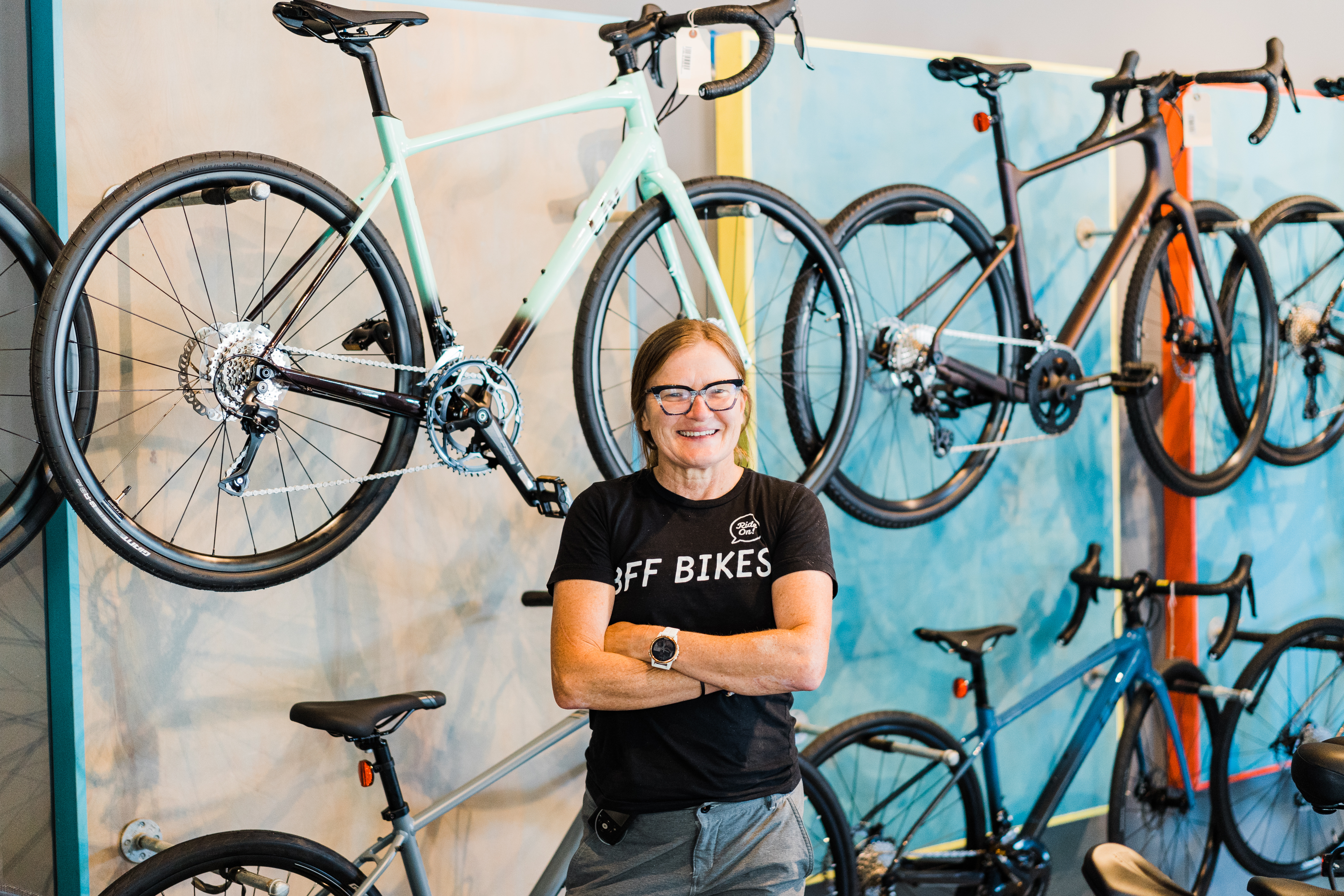
Market forces beyond our control include vendor discounting to consumers, which cuts into our margins due to having to match their prices; rapid technological changes that are hard to keep up with — yesterday's chain or cassette no longer works with todays; and the economic downturn, which has affected consumer spending.
I belong to the National Bicycle Dealers Association, which has been extremely helpful in navigating the current bike shop environment. We have a group of non-competing peers that are able to share ideas and strategies. Bikes are constantly changing, so having access to brand training that may not be what we carry but what we service would be great. It would be fantastic to have more training for e-bike servicing, especially on the electrical components. Finally, having better visibility to vendor discounting plans would make cash-flow planning easier.
NEWINGTON, N.H.: Steve Gerhartz, owner Seacoast E-Bikes

Manufacturer discounting has really hurt us this past year. Some have dropped their retail prices to below our cost. On the other hand, they have also dropped their wholesale prices, so we have been purchasing aggressively and cost-averaging the inventory. It also seems the pendulum is swinging back to lower supply, with some models unavailable until summer.
For POS and inventory management, we use Lightspeed, but its training is lacking. It would be great to get more one-on-one training to learn how to get the most value out of its products. We use Slack to store and access important information and for some non-time-sensitive internal communication. It is an easy way to access information without digging through emails or websites.
WINTHROP, Wash.: Julie Muyllaert, co-owner Methow Cycle & Sport

Within the bike industry, the market forces that feel most out of control and I continue to find most concerning are the highly promotional sales environment, low margins, health and resilience of independent shops, and inequities in supplier-retailer relationships. Long term, I hope that we’re not unintentionally training our customers to purchase solely on price versus value and service. Beyond the bike industry, my biggest concerns are fires, smoke, and floods due to a changing climate, the high cost of living, interest rates, and disparity of wealth. In order to manage, we’re paying attention to the changing market forces, closely examining our business practices, leaning into industry resources such as National Bicycle Dealers Association and BRAIN, asking for what we need from our suppliers — largely with success, doubling down on providing great service and enhancing our profitability, and connecting with peers for support, ideas, and camaraderie.
AUSTIN, Texas: Audrey and Mark Sze-To, owners Electric Avenue
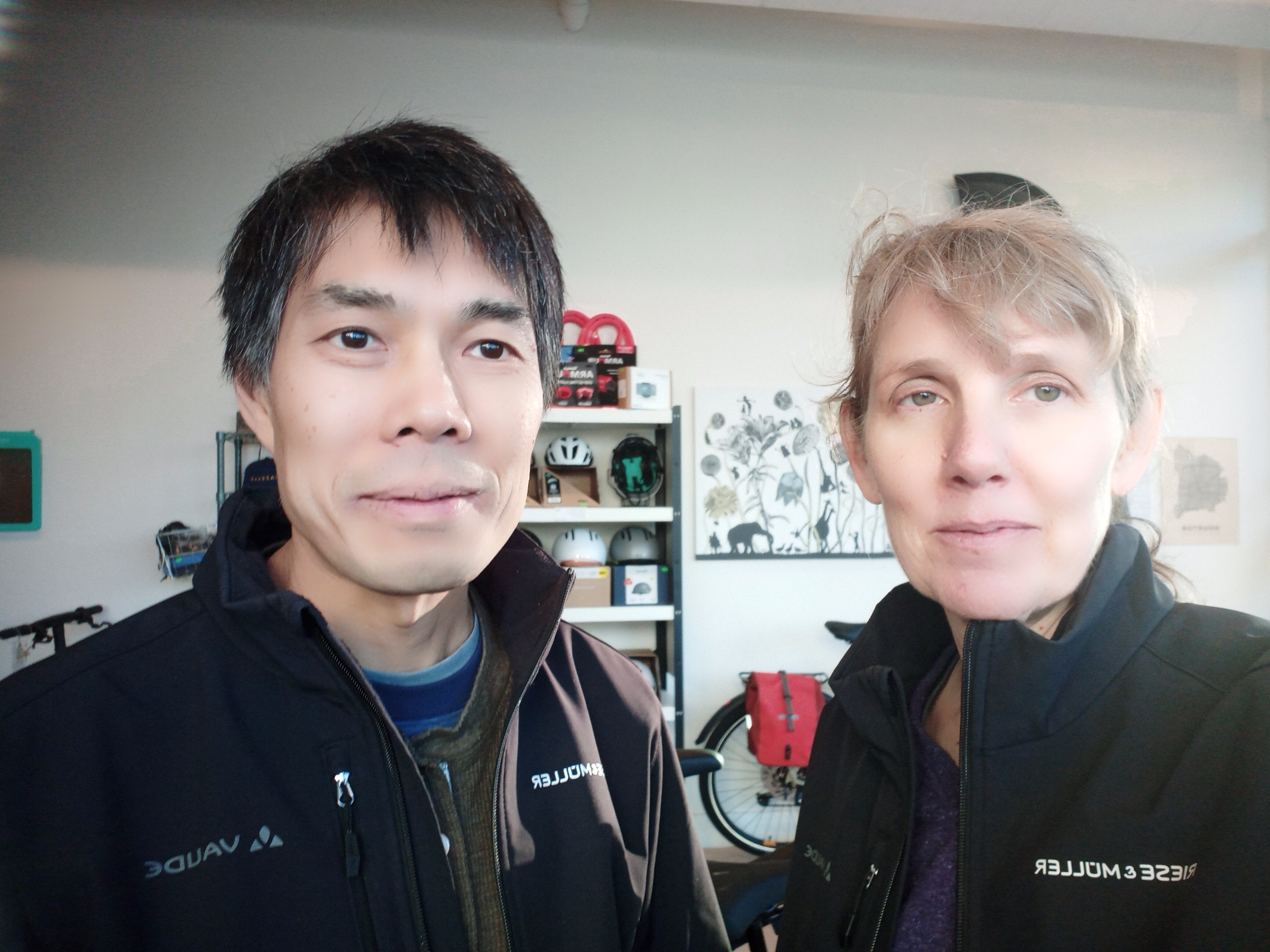
There are two market forces that seem most out of our control. The first is interstate discounted online bike purchases, which we combat by selling some used and discounted bikes. The second is that people often don’t feel safe riding a bike. We combat this by providing safety equipment like helmets, mirrors, and gloves, and suggest safe and alternate routes for people to ride or commute upon. We also walk the talk and ride our bikes not only as recreation but also as daily transportation.
The bicycle industry — like other worthy industries such as hospitality, radio, television, airplane mechanics, nursing, etc. needs more trade and university level classes to train and grow the next generation of bike technicians, mechanics, and industry managers, rather than purely relying on on-the-job training.
LITTLE FALLS, Minn.: David Sperstad, owner Touright Bicycle Shop
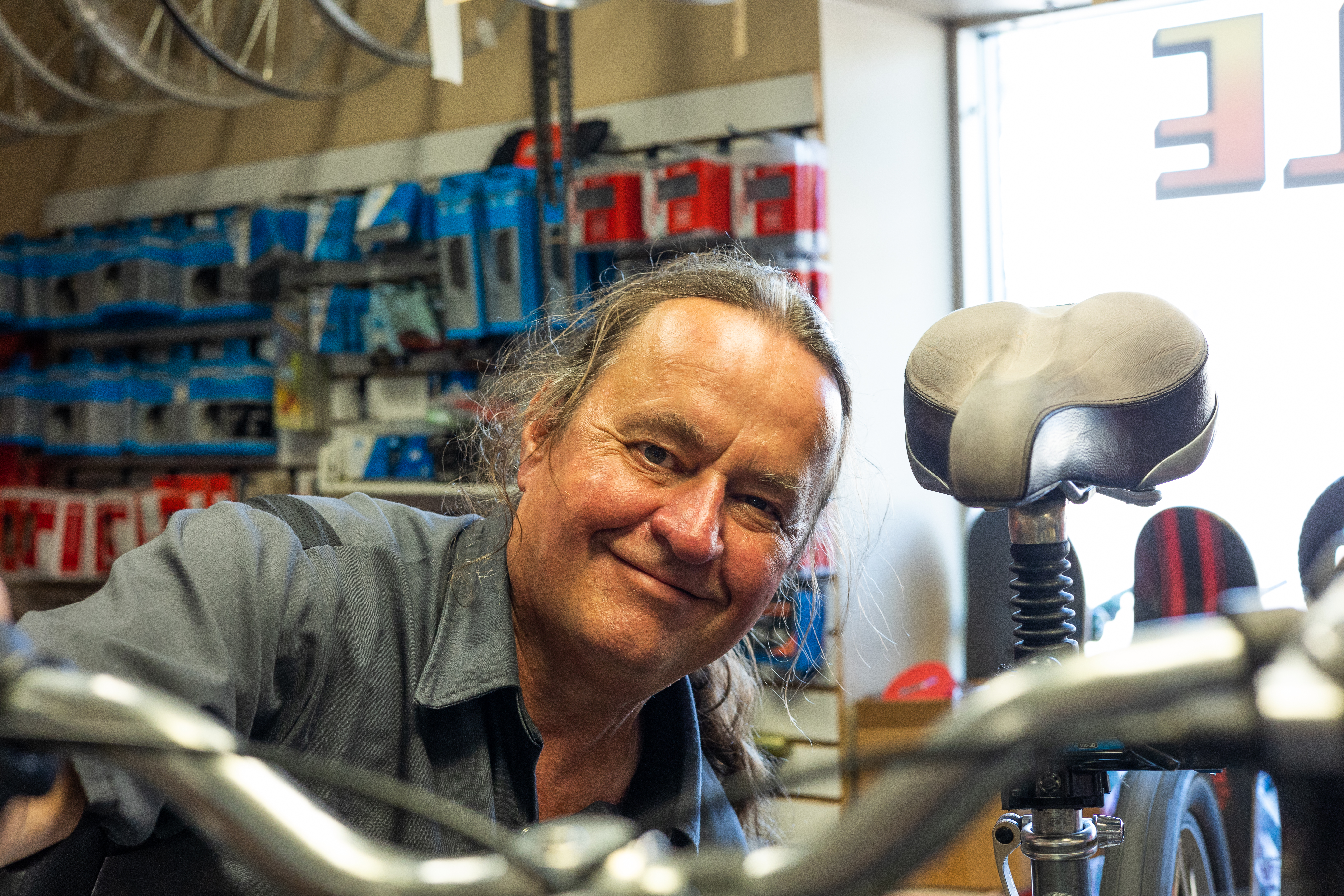
Market forces that are out of our control are internet sales and suppliers going direct to consumers. I don’t think we can really do anything about it other than communicating the benefits of buying from and supporting a local bicycle shop. I can only do what’s best for my small local shop to continue to change and adapt in ways that I’m comfortable.
I would appreciate help with the day-to-day, behind-the-scenes operations of the shop such as managing accounting, taxes, and government regulations. I would also like help seeing the store as a customer sees it, both the frequent visitor and the one-time, drive-through-town folks. Finally, I think it would be helpful if shops could somehow share advertisements like radio scripts and print ads, and cross-promote one another rather than compete against one another.
ALAMEDA, Calif.: Larry Tetone, event coordinator Alameda Bicycle
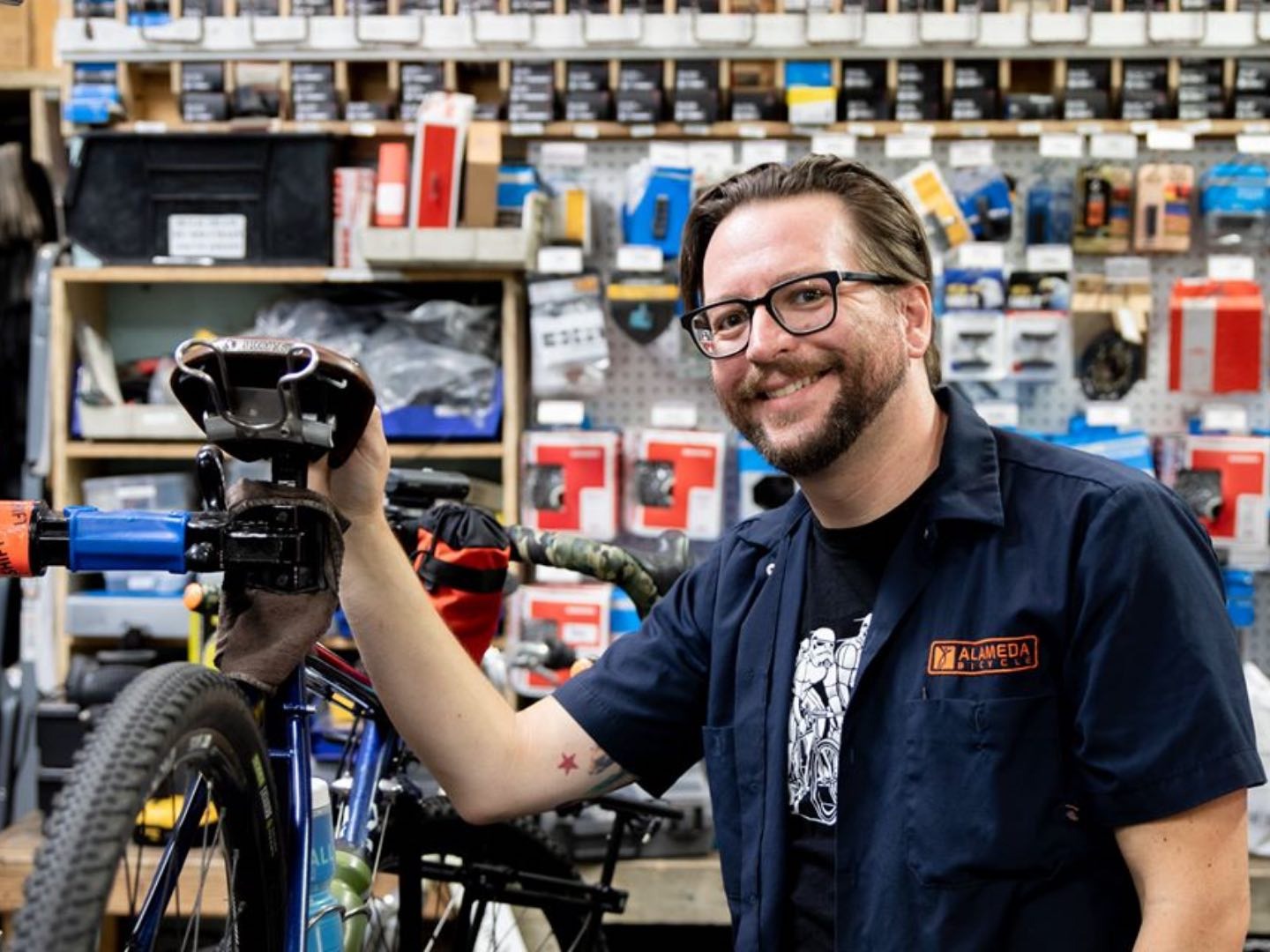
The health of the economy is out of our control. If folks have less disposable income, there’s only so much we can do to try to sell someone a bike. There’s not a magic switch to hit to combat a 20% drop in bike sales. Encouraging more folks to replace car trips with bicycle trips is something I think about a lot. Our city is a flat island that’s less than five miles in length. Infrastructure changes that are designed to make everyone safer and more comfortable on a bike, rebates for e-bikes, and local programs that encourage folks to start commuting by bike all could shift how people view their ability to move through their cities. In the long run, this would drive bike sales as well as help reduce car dependency. But these kinds of actions take time, resources, and plenty of advocacy. They aren’t quick solutions.
Visiting the websites of the larger bike manufacturers, I’m hit with images of high-end road bikes, carbon fiber gravel bikes, and a guy shredding on a full-suspension mountain bike with a full-face helmet and goggles. These are fantastic, very technical and impressive machines that I have to imagine the majority of bike riders out there would never want to touch. This industry grew by leaps and bounds during the pandemic because we got new folks on bikes, many for the first time since they were kids. I wish we as an industry would focus our effort on retaining and expanding that category.

